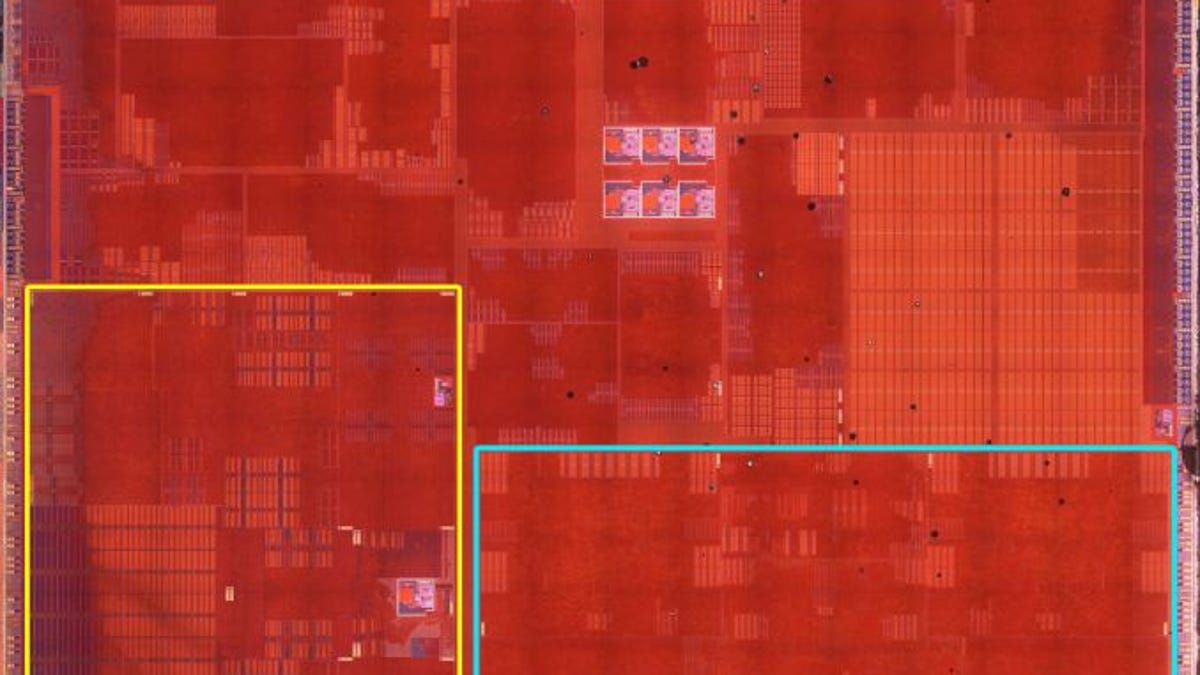Apple's A7 chip makes a run at Intel
The A7 is Apple's first "desktop" processor. Sounds like hype until you consider the potential for Apple's future.

Is Apple simply engaging in PR puffery when it talks about its "desktop" A7 chip? Not so fast.
Apple's claims for the first 64-bit "desktop class architecture" in a smartphone does sound like hype at first. A 64-bit design doesn't make any difference to most people, so it's marketing tripe -- so goes the argument.
Indeed, the repetitive PR-speak used in the A7 discussion in Apple's formal announcement of the iPhone 5S is a little off-putting. The A7's desktop-class design is the single most prominent feature that Apple mentions in the first three paragraphs of the release.
But there's teeth behind Apple's PR prattle.
Both CNET's and Anandtech's reviews indicate the chip is indeed really fast.
"Based on every benchmark we could find, the iPhone 5S and its new A7 processor seem at least twice as fast as the 5 and its A6," CNET Reviews said.
Anandtech said it challenges Intel's fastest tablet silicon.
The A7 SoC is seriously impressive...something capable of competing with the best Intel has to offer in this market. In many cases the A7's dual cores were competitive with Intel's recently announced Bay Trail SoC [system-on-a-chip]...The A7's GPU [graphics processing unit] performance is also insanely good -- more than enough for anything you could possibly throw at the iPhone 5s today.
That last sentence alludes to Apple's future.
It's not inconceivable that a future A8 or A9 will truly enter into laptop/desktop PC territory. After all, these days, laptop PC processors from Intel -- i.e., Haswell -- aren't about performance as much as power efficiency. That's something the A series has already pretty much mastered.
And PC makers crave the kind of chip that Apple is offering today -- or could offer next year. They want a low-power but fast processor to power ultra-skinny, ultra-light laptops and hybrids that mimic the feature set of the tablet.
Today, Intel is providing Haswell for that market segment and to a lesser extent its new Bay Trail Atom chip.
But you can't help but wonder what Apple might ultimately do with, let's say, an A9. Did someone say MacBook?

